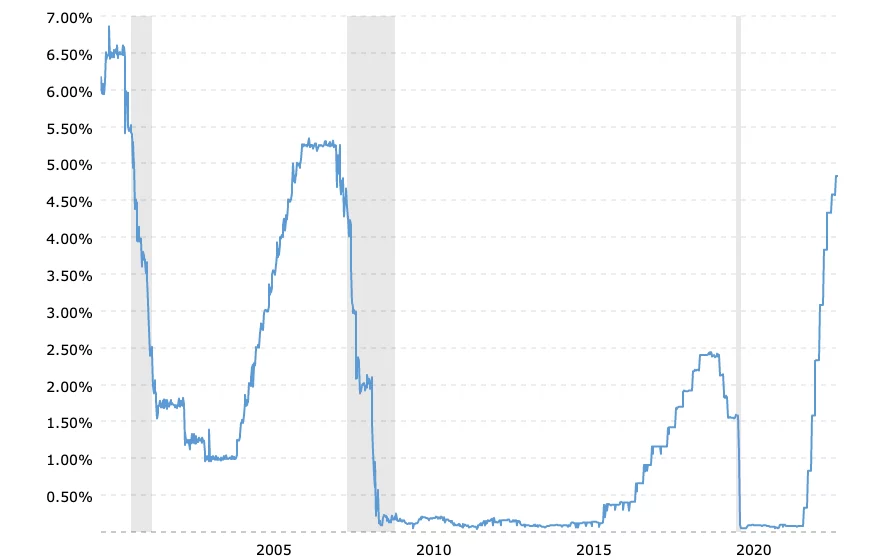The Secrets Behind Matt Odell’s Bitcoin Empire
Bitcoin Magazine The Secrets Behind Matt Odell’s Bitcoin Empire Matt Odell's vision to make open source freedom money profitable, might just work... This post The Secrets Behind Matt Odell’s Bitcoin Empire first appeared on Bitcoin Magazine and is written by Juan Galt.

Bitcoin Magazine

The Secrets Behind Matt Odell’s Bitcoin Empire
Matt Odell, Bitcoin entrepreneur, podcaster and venture capitalist, sat down with Bitcoin Magazine for an exclusive interview to discuss the future of the industry and the insights behind his success.
Famous for having deleted his Twitter account with over 250,000 followers to move full-time to Nostr, the open source Bitcoin-powered social media protocol, Odell has had a long-lasting impact in Bitcoin culture and the industry. Having started a popular Bitcoin podcast called Citadel Dispatch, where he has interviewed industry leaders weekly since late 2020, Odell is credited with iconic Bitcoin memes like “Stay humble, stack sats” and even branding the world “Zaps” to describe tips made with small amounts of bitcoin over social networks like Nostr.
“After spending over a decade using Twitter as my only social media it was time to move my energy over to a protocol that enables more user freedom,” Odell told Bitcoin Magazine.
Odell is a board member of OpenSats, a nonprofit focused on funding Bitcoin-focused open source projects that would otherwise struggle to find a footing in the highly competitive, closed software industry. He is also a managing partner at Ten31, a for-profit venture fund that approaches Bitcoin VC work with a dual mandate: “Our first mandate is to make our investors money and make good investments and return capital. And our second mandate is to help Bitcoin flourish as freedom money, help make Bitcoin a better tool to be used by the individual, to empower the individual.”
Originally a critic of Silicon Valley and the venture capital world, he has quickly become one of most renown VCs in the Bitcoin industry, leading a vision for venture capital which posits that building free and open source software with user privacy in mind can be more profitable in the long term than data mining users and locking them into “moats.” “All of our investments are built on top of open protocols. There’s no walled gardens. There’s not this whole idea of building a moat, like fencing your users in, extracting as much data out of them as possible, getting them addicted to the app, monetizing their time and their attention,” Odell passionately explained.
“When I was younger, before we launched Ten31, I was of the mindset that all venture capital was bad. And that was mostly a product of my observation of the large venture firms, the a16zs of the world… You see them throw hundreds of millions of dollars at shitcoin projects to dump shitcoins on retail. And then a project that’s trying to ethically build in the Bitcoin space struggles to get funding,” Odell said of the venture capital strategy seen in crypto.
The strategy sought to find exit liquidity for seed investors via ICOs or token launches, shortening the amount of time it usually took venture investment to get returns, from nearly a decade to as little as a few months.
Beside investments through ICOs, the traditional investment strategy pioneered by Silicon Valley — which Odell is also critical of — VC meant investing massive amounts of money in startups to create high-growth companies that acquire massive amounts of users as early as possible; then, try to deliver excellent products for free, even if the companies were unprofitable for many years.
The value of the equity in these traditional VC software companies depended on keeping those users, their data, IP, and controlling access to the network effects, while also building up the infrastructure needed to operate and scale. This strategy was the norm during low U.S. interest rates in the early 2000s and then again from 2008 to 2015, driven by the U.S. Federal Reserve’s monetary policy. The result was that lots of cheap capital found its way to VC firms which could then keep cashflowing these start ups for many years until they either became profitable or could be bought out by a competitor.

But those times have changed and the United States’s economic dominance has been challenged by rising powers in the East. Low interest rates can no longer be sustained without very visible inflation. As a result, many Silicon Valley startups have had to make hard pivots from high growth at a loss for many years, toward early revenue, favoring Odell’s investment strategy: startups that can become profitable quickly and start building a bitcoin treasury.
Profits and open source don’t mix well; in fact, they almost seem like contradictory ideas. When asked how to achieve sustainable open source funding and venture capital in open source he said, “I think there’s a middle ground that’s harder” referring to the path taken by OpenSats and Ten31. He continued that, “because you’re building on open protocols, you can hit a scale that closed proprietary software likely can’t hit.”
Odell also explained that, “When we’re actually looking for investments, the goal is a little bit different than traditional venture capital, in that we are looking for founders that are, first of all, building on Bitcoin and making Bitcoin more robust, but that are also willing and able to operate very lean with as reduced expenses as possible and try to become profitable as quickly as possible.”
The VC economic calculus is quite different when you believe bitcoin is the best money ever invented and has a long life ahead of it. “In traditional investor land,” Odell noted,
“what you see is this growth-at-all-costs mindset. They’ll burn $100 million, they’ll burn $200 million, and then maybe in 10 years, they’ll start becoming profitable. But you can’t do that in a Bitcoin world because what is the price of bitcoin going to be in 10 years? And you should be measuring all of your revenue in sats, in bitcoin.”
Profitable Bitcoin startups can build their own bitcoin treasury reserves and over time become very successful.
The Ten31 Portfolio And Investment Thesis
The Ten31 portfolio includes over thirty companies that build on top of open protocols while being Bitcoin-centric and quick to profitability.
Start9, for example, builds Bitcoin-native software that is open source from top to bottom; it’s functional on most hardware without classic Silicon Valley hardware restrictions like those pioneered by Apple. “Start9 is a perfect example that will probably never get a16z funding… Their entire stack is open source. You can never pay them a cent, and you can use all of their products… But at the same time, their goal for monetization is twofold. You can optionally buy a pre-built device from them, and they want to add increasing value-added services on top — stuff like premium support, proxy services, stuff like that,” Odell noted.
Mempool.Space, perhaps the most popular block explorer in Bitcoin, is another example of a successful company built around open source. “Mempool.space is something that’s integrated in almost every Bitcoin wallet. It’s an absolutely integral open source software… They monetize because they have the transaction accelerator, which you can pay for with bitcoin… They also have B2B enterprise agreements,” Odell told Bitcoin Magazine.
AnchorWatch, a fairly new Bitcoin company that has tackled the very difficult problem of insuring bitcoin holdings from theft, is another great example. The company builds on top of Bitcoin, getting to leverage its network effect but also bridging it to the insurance market. “I think the insurance element is really interesting, specifically self-custody with insurance… It actually provides a value proposition to users that is better than paper Bitcoin,” Odell added.
Of the cohort, Strike, the Bitcoin-focused payment app founded in 2019 by Jack Mallers, is Ten31’s biggest and most profitable investment. It’s available in countries all over the world and delivers Bitcoin’s cutting-edge technology to the public while also navigating the complexities of regulatory compliance and a seamless user experience. “In terms of a pure investment point of view, Strike is by far the company I’m most excited about. We’re the largest investor. We’re the only external board seat… That company is global. It has significant product-market fit. It’s incredibly profitable. They’re stacking bitcoin to their treasury: They have over 1,500 bitcoin in their treasury… And they’re profitable. So, every month, they’re just acquiring more bitcoin.”
OpenSats Funds Open Source Development
Founded in 2021, OpenSats is the nonprofit organization that preceded Ten31. It funds open source developers and entrepreneurs developing Bitcoin infrastructure that would otherwise be very difficult to find funding for. “OpenSats had this dream that, okay, maybe we could solve this problem by plebs giving $50 a month, pledging to give $50 a month to open source developer grants… That turned out to be way more difficult than I expected,” said Odell. About the early vision of the organization, which unfortunately did not draw in as many reliable donations as needed to fund open source Bitcoin developers, he recalled: “Specifically, OpenSats is 100% pass-through because a lot of charities have questionable practices where they take a large cut of donations.”
Odell added that, “Bitcoin is the best money that has ever existed. But there’s this weird dichotomy that exists. It’s the best money that ever existed, but money for builders in the Bitcoin space is incredibly difficult to come by because, first of all, you have this overarching crypto ecosystem that drains a ton of capital. And then among the people that understand the power of Bitcoin, a lot of them are unwilling to part with their sats and tend to hold on to their bitcoin rather than using it to support builders.”
Nevertheless, OpenSats got a generous donation from Jack Dorsey — co-founder and ex-CEO of Twitter — of 31 million dollars. “All of our large donations are public, of that 35 million on the OpenSats side, 31 million was Jack Dorsey’s personal charity, Start Small Foundation, which is our major supporter,” Odell said. An interesting fact is that even today, after years of providing grants to Bitcoin open source projects throughout the world, their treasury is larger than what they ever raised, because they kept all that capital in bitcoin. “We actually have more in our multi-sig treasury than we’ve ever raised in the lifetime of the organization. Which is pretty awesome. Our treasury strategy is the most simple, effective treasury strategy, which is: Every dollar that comes in automatically gets converted to bitcoin. We just keep 100% bitcoin reserves.”
The Bitcoin Policy Institute
Odell is also a founding member of the Bitcoin Policy Institute, a major player in educating politicians in Washington about Bitcoin, how it works and why it is beneficial to the public. The recent pivot of the Bitcoin industry toward engaging Washington differs from the pure libertarian mindset of Bitcoin’s early history. To Odell, however, this is a natural extension of the two fundamental pillars that have made Bitcoin great — education and tooling. These pillars were pioneered by the Cypherpunks of the 90s in the first “crypto war,” and succeeded in making nation-state grade cryptography available to the world.
“Part of the inspiration, too, is, you know, I was pretty disenfranchised with politics. And Adam Back personally was a big inspiration for me in terms of his experience with the original Cypherpunk movement and the original crypto wars. When it came to encryption, they fought it on two fronts. They fought it with tools. So they made it really effective and cheap and accessible for people to encrypt things, but they also fought it in the courts and in politics and in mind share,” Odell recalled.
These two pillars were also seen from day one of Bitcoin in the form of the Bitcoin Talk forum and the Bitcoin software, both founded by Satoshi Nakamoto. The pillars were later on extended to Bitcoin meetups all over the world and the massive proliferation of Bitcoin wallets and hardware security devices, as well as developer tooling. Today, BPI extends this education pillar to policymakers who often know very little about Bitcoin, how it works or why it is in the best interest of the public, which they, as public servants, are ultimately subservient to.
Bitcoin Park and the Social Layer
Odell is also a co-founder of Bitcoin Park, a community hub out of Nashville, Tennessee, which has gathered a significant amount of Bitcoin talent in the U.S. and hosts events regularly. Earlier this year, they expanded to Austin, Texas, acquiring the Bitcoin Commons, establishing their presence and reach in perhaps the two top cities for Bitcoin in the United States.
“Bitcoin Park began at a brewery in Nashville,” Odell recalled. “It was a meetup at a brewery, and we quickly hit, like, 200 people a month for meetups. The brewery was basically like, ‘you can’t come here anymore’. And we’re like, okay, let’s find our own space. And that’s how Bitcoin Park Nashville was born.”
When asked what his vision for Bitcoin Park is, he said, “I would ideally like it to… just be an inspiration for other communities to pop up around the world that are not controlled by Bitcoin Park… I think it’s easy to think of Bitcoin as a tech movement, but it’s really a movement of individuals, right? And the tech just empowers the individuals.”
Odell’s Warning About Bitcoin-Backed Loans
Odell had a cautionary warning about bitcoin-backed loans, which he has a deep insight into by merit of Ten31’s investment in Strike. Explaining the demand for this new type of Bitcoin company, Odell said that “the main demand driver really is people are sitting on significant capital gains, taxable if you use/sell — which is really a tax on savings… If you’ve been sitting on bitcoin since $100, $200, and you’re selling for $120,000, you’re paying the government like $30,000 — which is kind of insane.”
He also warned of the downside risk in the bitcoin price, a theme that is commonly discussed; he advises users of these loans to be “very conservative.” He also warned about the need to compete in this market with self custody — or at the least auditable structures — that segregate the Bitcoin collateral from re-hypothecation. Stressing the need for competition in this market, “I think it’s a very important product because they’re going to offer it for the ETFs, and it creates a very perverse incentive where you’re better off not holding real bitcoin… It’s really important for Strike and the other companies in the space to offer a really solid, good product in terms of loans so that there’s a very strong incentive to stay with real bitcoin.”
This post The Secrets Behind Matt Odell’s Bitcoin Empire first appeared on Bitcoin Magazine and is written by Juan Galt.
What's Your Reaction?









































